Essayer OR - Gratuit
The Cuban Missile Crisis
Scale Aircraft Modelling
|November 2022
Modelling US reconnaissance assets in 1/72 Part 2: The Nuclear Confrontation

As noted last month, on 22 October 1962 the US President, via the Joint Chiefs of Staff (JCS), placed the US military (with the exception of the US Army in Europe) on a DEFCON 3 alert level. In addition to the surface-to-air defensive missiles previously noted, both short-range Frog missiles (much later revealed to have been available with twelve nuclear warheads), and SSC-2a Salish missiles (also later revealed with eighty nuclear warheads) were found on the island, together with much more serious hardware at the following sites: Guanajay - Two SS-5 Skean IRBMs Remedios - One SS-5 Skean IRBM San Cristobal - Four SS-4 Sandal MRBMs Sagua la Grande - Two SS-4 Sandal MRBMs
On Cuban airfields there were the following aircraft: Baracoa - FAR Mi-1, Mi-4 Camaguey - 3 Sqn 213 Av Regt PVO, MIG-21F-13, FAR MiG-15bis Ciudad Libertad - FAR MiG-15Rbis (recce), Mi-4 Holguin - VVS II-28, FAR MiG-15bis Mariel - 437th Helicopter Regt, VVS, Mi-4 San Antonio de los Banos - 2 Sqn, 213 Av Regt PVO, MIG-21F-13, FAR MIG19P, MiG-15bis, Il-14 San Julian - 759 Torpedo Regt VMF, II-28 Santa Clara - 1 Sqn 213 Av Regt PVO, MiG-21F-13, FAR MiG-15bis FAR - Fuerza Aérea Revolucionaria (Cuban Air Force)
The ensuing nuclear confrontation with the Soviets was, of course, led by USAF Strategic Air Command (SAC). On 20 October two aircraft from each of the B-52 wings were placed on standby ground alert on Emergency War Order (EWO), nuclear payload status pending a formal presidential decision. Following the DEFCON 3 declaration on 22 October, at 17:00 EDT Commander in Chief SAC (CINCSAC) directed a one eighth airborne alert for the B-52 wings under so-called Chrome Dome. Approximately sixty-five airborne B-52s were 'target effective' with nuclear weapons at any given time. There were to be three routes flown to the Soviet Union - Thule (two aircraft), the northern route (twenty-eight
Cette histoire est tirée de l'édition November 2022 de Scale Aircraft Modelling.
Abonnez-vous à Magzter GOLD pour accéder à des milliers d'histoires premium sélectionnées et à plus de 9 000 magazines et journaux.
Déjà abonné ? Se connecter
PLUS D'HISTOIRES DE Scale Aircraft Modelling
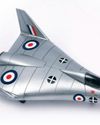
Scale Aircraft Modelling
Mustard
BAC's Low Speed Research Vehicle
2 mins
April 2023
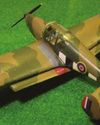
Scale Aircraft Modelling
KOVOZAVODY PROSTEJOV (KP) 1 Was Monty's Triple'
Brian Derbyshire
5 mins
November 2022
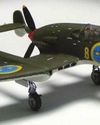
Scale Aircraft Modelling
SPECIAL HOBBY SAAB J-21A Review
From the late 1930s and early 1940s, with thewar in Europe raging around them andedging ever closer to its borders, the Flygvapnet had ordered Seversky P-35A aircraft, alongside Vultee Vanguards, but only sixty of the former and none of the latter were received.
8 mins
November 2022
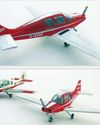
Scale Aircraft Modelling
VFR MODELS Beagle B.121 Pup
This is the first 3D printed kit I have come across and it is really rather fine.
3 mins
November 2022
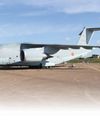
Scale Aircraft Modelling
Hearts in the sky RIAT RETURNS
After a nearly three-year hiatus RIAT returned to our skies with a hot show in every sense of the word. SAM’s Mike Verier and Ray Ball were there.
2 mins
November 2022
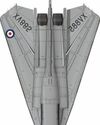
Scale Aircraft Modelling
Colour Conundrum
A Cancellation Conundrum - The RAF F-111s That Might Have Been Part 1
17 mins
November 2022

Scale Aircraft Modelling
COPPER CAUDRON Caudron G.Ill in 1/32
Copper State Models have carved a name for themselves in the last few years producing high quality plastic kits of World War One subjects.
10 mins
November 2022
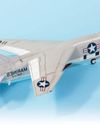
Scale Aircraft Modelling
Academy RF-8A Crusader Conversion in 1/72
USMC squadron VMCJ-2 used six RF-8As during the Crisis (designation F8U-1P until September 1962), with others held in reserve, two flying out of Guantanamo Bay, and four out of NAS Key West.
20 mins
November 2022
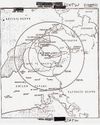
Scale Aircraft Modelling
The Cuban Missile Crisis
Modelling US reconnaissance assets in 1/72 Part 2: The Nuclear Confrontation
9 mins
November 2022
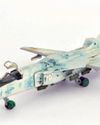
Scale Aircraft Modelling
UKRAINIAT striker
The Sukhoi Su-24 is an all-weather attack aircraft capable of supersonic speeds and characterised by its side-by-side pilot/navigator seating and its variable geometry wing.
4 mins
November 2022
Translate
Change font size
